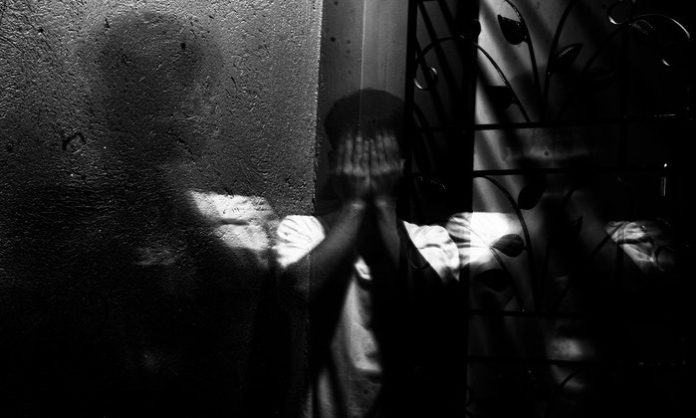Depression is a serious mental illness characterized by symptoms like depressed mood and negative thinking, increased fatigue, and a lack of motivation and passion for day-to-day responsibilities as well as in activities previously enjoyed. Put simply, the symptoms of depression make it difficult to get through life, causing you to shut down and give up entirely.
The good news? Depression is more than treatable, and you can return to the quality of life that you want. That said, recovery is also a highly personal journey, meaning that you will need to learn how to improve your mindset and cope with negative emotions when they make an appearance. If clinical depression has affected you, here are five things you can do to cope with depression and improve your mental health.
1. Seek out the help of a mental health professional immediately.
No matter the type of depression you are experiencing, you should seek help the moment you notice depressive symptoms manifesting in your life. But taking this important first step begins with knowing exactly what depression looks like. Some of the symptoms of depression to look out for include:
- Feelings of sadness, anger, guilt, worthlessness, or emptiness
- Difficulty concentrating and poor memory
- Fatigue and slow movement and speech
- Trouble sleeping or sleeping too much
- Increased or decreased appetite
- Physical aches and pains that have no apparent cause
- Signs of severe depression like self-harm or thoughts of suicide (if you believe that you may be at risk of harming yourself, reach out for emergency help immediately)
If you notice any of these signs in yourself, look for help by searching online for help. CAST centers—a depression treatment center Los Angeles—for example, focuses on providing comprehensive support (especially for individuals with a dual diagnosis like depression and anxiety or substance abuse) by using their unique CAST alignment model to treat psychological issues.
Whether you need intensive outpatient care, flexible outpatient care, or a unique treatment program that works best for your needs, CAST is invested in your recovery for the long-haul. Remember, depression can only be treated when we take the initiative and get the help that we need.
2. Look for alternative treatments to help you deal with your depressive disorder.
While natural remedies are by no means replacements for traditional medications, they can help to further support your mental health and make it easier to cope with your depression. One popular substance that is said to be very helpful in alleviating the symptoms of depression is CBD.
More research needs to be conducted at this time, but it is believed that CBD can affect the serotonin receptors found within the brain, making it so that they respond better to the serotonin that is produced by the body (which then reduces anxiety and depression).
One important thing to remember when approaching natural substances like CBD, however, is that you must buy from trustworthy sources that only sell quality products. In this case, choosing to buy CBD flower from a company like Plain Jane can be a great way to get your hands on the right product. Being that it is a company that values making products affordable for all, sourcing from local farmers, and providing the best possible experience, you are sure to get the most out of any CBD product you buy from Plain Jane.
3. Find self-help activities that make you feel better when your mood is down.
When we have depression, much of our energy may go into trying to take care of our responsibilities rather than taking care of ourselves. As such, it is important that you have several self-help tools at your disposal that serve to make you feel a little bit better when your depression is getting the best of you. Whether this means taking a bath, eating chocolate, journaling, or listening to some upbeat music, find things that lift you up and help you break away from the negative emotions you are currently feeling.
4. Set small goals and develop a routine.
When we’re depressed, our self-image and confidence often take a major hit. These feelings of worthlessness and low confidence will then be further exacerbated by our fatigue and inability to engage in many of our normal activities. The solution? Develop a routine for yourself and set small goals that can be easily reached.
For example, you can set goals such as getting out of bed, taking a shower, and doing one simple thing for yourself. Once you see that you can hit those minor goals, your confidence will improve, which will then open the door for you to set bigger goals and get back into your usual routine, helping you better cope with your depression over time.
5. Make an effort to eat better and get exercise.
Our physical and mental are more connected than we know. How we treat our bodies has a direct impact on the health of our minds. One excellent change to make to help you cope with depression and prevent future episodes is to focus on healthy eating and movement. Just making simple changes like introducing more healthy foods to your diet and walking daily can have a massive impact on your overall health and well-being!
Depression is a serious mental health problem. However, it is one that can be treated and one that you can learn to cope with over time. If depression has entered your life, use the five tips provided above to better navigate this experience and find your way back to the life that you used to lead.
Photo by Ian Panelo from Pexels
Readers Might Also Like:
 5 Ways to Improve Your Critical Thinking Skills This Month
5 Ways to Improve Your Critical Thinking Skills This Month
 9 Life Hacks To Gain From Starting A Yoga Practice
9 Life Hacks To Gain From Starting A Yoga Practice
 The Health Benefits of Flaxseed
The Health Benefits of Flaxseed

